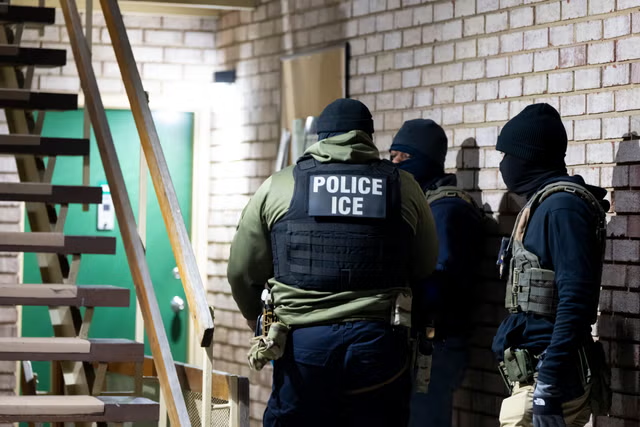An 82‑year‑old grandfather, Luis Leon, was quietly deported by ICE after visiting an immigration office in Philadelphia to replace a lost green card, raising new alarms about America’s sharp turn toward aggressive deportation of even long‑standing lawful residents.
His family, left in suspense for weeks, thought he had died. He was hospitalized in Guatemala when contact was finally made. As legal experts express alarm, this case further exposes the harsh ripple effects of Trump-era mass deportation policies, especially toward non‑criminal green card holders.
A routine green‑card replacement leads to exile
On June 20, Leon and his wife appeared at a Philadelphia USCIS office to request a replacement green card. Despite their apparent legal standing, ICE agents handcuffed him and led him into custody, without notifying family or providing any explanation.
From that moment, his loved ones scrambled, calling hospitals, jails, and even a local morgue. They’d believed he might be dead. Finally, on July 9, his wife received a disconcerting phone call “confirming” his death—yet no official document backed the claim.
Weeks of uncertainty ensued until word arrived: Luis had been transferred from Minnesota to Guatemala City—under circumstances that remain murky.
How did an 82‑year‑old legal resident end up deported?
Luis Leon was granted political asylum in 1987 after fleeing torture under Pinochet’s regime, and has lived in the U.S. for decades with no criminal record.
Critics now point to a recent Supreme Court decision that allows deportation to third countries—even those the immigrant has never lived in. ICE can deport green card holders quickly, potentially disregarding long ties to the U.S.
Data shows that, as of June 1, more than 56,800 individuals were in ICE custody, and a staggering 72% had no criminal convictions, signaling broad use of civil deportation powers.
Broader pattern: Lawful residents increasingly targeted
This is no isolated incident. ICE has detained U.S. green cardholders under various circumstances: a Colorado man in his 60s was arrested walking his dog despite decades-long legal status, and other cases include elderly immigrants detained while visiting family or renewing documents.
Such incidents coincide with a surge in civil arrests: Since January, non‑criminal detainees arrested by ICE soared by around 800%, and non-criminal detainees now make up roughly 23% of all ICE arrests—up from 6% earlier this year.
Family anguish and procedural opacity
Leon’s granddaughter, Nataly, has described the ordeal this way:
“I can see all my family is in pain right now.”
The family never knew where he was or why; even worse, they briefly heard a caller claiming he died. They were later told he was in Guatemala, not the U.S.—a massive geographic shift with zero notice.
A previous caller pretended to be an immigration attorney, claiming bail could be arranged, amplifying the confusion and emotional damage.
What’s fueling this shift in ICE enforcement?
Data trends back a compelling narrative: ICE is now prioritizing civil violations—such as lost documentation or visa expiration—over criminal records. Fiscal-year goals, reportedly around 3,000 deportations per day, appear to be driving this approach. The Daily Beast
Even lawful permanent residents—once thought secure—are now vulnerable under expanded ICE powers. Policy changes and internal memos have created loopholes that embolden wider enforcement. The recent Supreme Court decision authorizing deportation to third countries further lowers barriers.
Legal, human, and moral consequences
Legal advocates argue that deporting long-term lawful residents without a transparent process violates fundamental due process. Many hold that such deportations are arbitrary and inconsistent with longstanding immigration principles.
Human rights groups are sounding alarms. The trauma of being separated from family, detained abroad, and misled by authorities is acutely felt, especially among the elderly and medically fragile.
Conclusion: a warning call to reform and compassion
Luis Leon’s case underscores a darker turn: lawful residents are increasingly swept into enforcement efforts, sometimes with no clear notice or path to challenge. The implications extend beyond this family to policy, legislation, and the values of a humane immigration system.
Congress, courts, and the public must examine the rapid expansion of civil immigration power, especially regarding green card holders. If due process continues to erode, more families will endure the pain, uncertainty, and injustice experienced by Leon and his loved ones.
Subscribe to trusted news sites like USnewsSphere.com for continuous updates.





